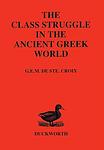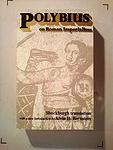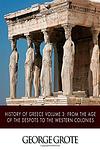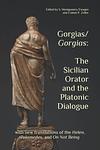The Greatest "Greece, Ancient History" Books of All Time
Click to learn how this list is calculated.
This list represents a comprehensive and trusted collection of the greatest books. Developed through a specialized algorithm, it brings together 300 'best of' book lists to form a definitive guide to the world's most acclaimed books. For those interested in how these books are chosen, additional details can be found on the rankings page.
Genres
The "Greece" category of books encompasses literature that is set in or inspired by the country of Greece. This can include historical fiction, mythology, travel writing, and contemporary novels that explore Greek culture, history, and society. These books often feature themes of ancient mythology, philosophy, and the country's rich history, as well as its modern-day struggles and triumphs. The Greece category offers readers a diverse range of stories that capture the essence of this beautiful and complex country.
Ancient History is a category of books that focuses on the study of human civilizations and societies that existed in the distant past, typically before the Middle Ages. This genre encompasses a wide range of topics, including the rise and fall of empires, the development of religions and cultures, the evolution of technology and science, and the political and social structures of ancient societies. Ancient History books provide readers with a glimpse into the lives and experiences of people who lived in a vastly different world than our own, offering insights into the origins of modern civilization and the forces that shaped our world today.
Countries
Date Range
Reading Statistics
Click the button below to see how many of these books you've read!
Download
If you're interested in downloading this list as a CSV file for use in a spreadsheet application, you can easily do so by clicking the button below. Please note that to ensure a manageable file size and faster download, the CSV will include details for only the first 500 books.
Download-
1. The Iliad by Homer
This epic poem focuses on the final weeks of the Trojan War, a conflict between the city of Troy and the Greek city-states. The story explores themes of war, honor, wrath, and divine intervention, with a particular focus on the Greek hero Achilles, whose anger and refusal to fight have devastating consequences. The narrative also delves into the lives of the gods, their relationships with humans, and their influence on the course of events.
-
2. The Histories of Herodotus by Herodotus
"The Histories of Herodotus" is an ancient text that provides a comprehensive account of the Greco-Persian Wars. It is often considered the first work of history in Western literature. The author, often referred to as the 'Father of History', provides a narrative that not only discusses the conflicts between the Greeks and Persians, but also delves into the customs, geography, and history of each civilization. This detailed and pioneering work has greatly contributed to our understanding of the ancient world.
-
3. Parallel Lives by Plutarch
"Parallel Lives" is a collection of biographies of famous Greek and Roman figures, written in pairs to draw comparisons between their lives. The work explores the influence of character on the lives and destinies of these historical figures. The biographies are not only a record of the lives of these individuals, but also provide insight into the times in which they lived, offering a unique perspective on the history and culture of the ancient world.
-
4. The History of the Peloponnesian War by Thucydides
This book is a historical account of the Peloponnesian War between the city-states of Athens and Sparta in ancient Greece. The author, an Athenian general, provides a detailed narrative of the war, its causes, and its consequences, offering valuable insights into the political and social dynamics of the time. The work is considered a pioneering piece in the field of history due to its rigorous methodology and critical analysis of events.
-
5. Mythology by Edith Hamilton
This book is a comprehensive guide to ancient Greek, Roman, and Norse mythologies, providing detailed accounts of various gods, goddesses, heroes, and other mythological creatures. It includes well-known stories like the Odyssey and the Iliad, along with lesser-known tales, and analyzes their significance in the cultures they originated from. The book also delves into the origins of these myths and their influence on later civilizations, offering readers a deep understanding of ancient cultures and their belief systems.
-
6. Symposium by Plato
In "Symposium", a group of notable men including philosophers, playwrights, and politicians gather at a banquet and decide to each give a speech in praise of the god of love. Each speech presents a different perspective on love, ranging from the purely physical to the spiritual. The dialogue culminates with the speech of Socrates, who presents a philosophical view of love as a means of ascending to contemplation of the divine.
-
7. The Suppliants by Aeschylus
"The Suppliants" is a classic Greek drama that revolves around a group of fifty women who flee from Egypt to avoid marrying their cousins, seeking asylum in the city of Argos. The King of Argos is torn between offering them protection or facing the wrath of the Egyptians. The play explores themes of democracy, law, and the struggle between the sexes. The drama ends on a cliffhanger, with the Egyptian suitors arriving to reclaim the women and threatening war.
-
8. Apology by Plato
This philosophical text is a dialogue of Socrates' defense in 399 BC against the charges of 'corrupting the young, and by not believing in the gods in whom the city believes, but in other daimonia that are novel.' The dialogue is Socrates' defense at his trial and is his final public statement before his execution. In it, he discusses the moral and philosophical justification for his actions and beliefs, ultimately leading to his conviction and death.
-
9. The Theogony by Hesiod
"The Theogony" is an ancient Greek epic poem that explores the genealogy of the gods. The narrative begins with the primordial deities Chaos, Gaia, and Eros, then progresses through the generations of Titans, Olympian gods, and mortal heroes. It provides an account of the struggles and power dynamics among these divine beings, culminating in the reign of Zeus as the king of the gods. The poem is a significant source of Greek mythology and offers insights into the ancient Greeks' worldview and their understanding of the universe's origins.
-
10. Works and Days by Hesiod
"Works and Days" is an ancient Greek epic poem that provides advice on life and farming. The author uses the myth of Prometheus and Pandora to explain why life is hard for humans, attributing it to Pandora's release of evils into the world. The work serves as a farmer's almanac, giving detailed advice on the best times to plant and harvest crops, and also provides moral guidance, emphasizing the importance of hard work, justice, and piety.
-
11. The Marriage Of Cadmus And Harmony by Roberto Calasso
"The Marriage of Cadmus and Harmony" is a unique exploration of Greek mythology. The narrative follows the journey of Cadmus, a Phoenician prince, and his marriage to Harmony, a goddess. The book delves deep into the complex and rich tapestry of Greek myths, presenting them as a continuous and ever-evolving story. It offers fascinating insights into the gods, heroes, and monsters of ancient Greece, while also drawing connections to modern life and thought.
-
12. Phaedrus by Plato
Phaedrus is a Socratic dialogue that discusses topics such as love, the nature of the soul, and the art of rhetoric. The narrative begins with a myth about the chariot of the soul, then moves on to a discussion about the nature of love, particularly focusing on the concept of divine madness. The dialogue then transitions into a discussion about rhetoric and writing, debating the merits and pitfalls of both. The dialogue concludes with a critique of the art of rhetoric, arguing that true rhetoric must be based on truth and knowledge rather than manipulation and deceit.
-
13. Gardens Of Adonis by Marcel Detienne
"Gardens of Adonis" delves into the intricate world of ancient Greek mythology and rituals, focusing on the figure of Adonis. The book explores the symbolic and practical roles of spices and herbs in Greek culture, particularly in relation to the Adonis cult. Through an analysis of the ephemeral gardens dedicated to Adonis, the work examines themes of fertility, death, and rebirth, revealing how these gardens, despite their fleeting nature, held profound meanings for ancient Greek society. The study highlights the interplay between myth and ritual, offering insights into the agricultural and religious practices of the time.
-
14. The Greek Myths by Robert Graves
The book is a comprehensive and detailed guide to the ancient myths of Greece, presented in a narrative format. It explores the origins and histories of Greek gods, goddesses, heroes, and heroines, providing interpretations of the myths and discussing their variations. The author combines elements of archaeology, comparative mythology, and classical literature to offer insights into the historical and cultural contexts of these stories, making it an essential resource for anyone interested in classical mythology or the ancient world.
-
15. The Greeks And The Irrational by E.R. Dodds
In "The Greeks and the Irrational," the author explores the concept of irrationality within ancient Greek culture, challenging the traditional view of the Greeks as pioneers of rational thought. The book delves into various aspects of Greek society, including religion, philosophy, and literature, to uncover the presence and acceptance of irrational elements such as divine inspiration, prophecy, and mystical practices. By examining these aspects, the work argues that irrationality was integral to the Greek worldview and that acknowledging this can lead to a more nuanced understanding of ancient Greek civilization and its contributions to Western thought.
-
16. The Class Struggle In The Ancient Greek World by G.E.M. de Ste. Croix
"The Class Struggle in the Ancient Greek World" is a comprehensive historical analysis that explores the dynamics of class conflict from the earliest times in ancient Greece up to the Roman Empire. The book delves into how social and economic factors shaped class relations and examines the extent to which class struggle influenced political developments and historical outcomes in the ancient world. Through meticulous examination of sources and evidence, the work challenges traditional views of ancient society by highlighting the significance of class divisions and conflicts as central elements in the historical progression of the Greek and Roman periods.
-
17. The Histories by Polybius
"The Histories" is a comprehensive account of the rise of the Roman Empire, focusing on the period from 264-146 BC. The author, a Greek statesman, provides a detailed analysis of the political, military, and social structures of Rome, attributing its success to a balanced constitution and superior military organization. The work also includes first-hand accounts of several significant events, such as the Third Punic War and the Numantine War.
-
18. Selected Speeches by Demosthenes, Robin Waterfield
"Selected Speeches" is a compilation of orations by one of ancient Greece's most renowned orators, Demosthenes. The collection, translated and edited by Robin Waterfield, showcases Demosthenes' eloquence and his passionate involvement in the political life of Athens. Through these speeches, readers gain insight into the complex social and political issues of the time, including the struggle against Macedonian influence under Philip II. The speeches not only highlight Demosthenes' rhetorical prowess but also reflect the dynamics of power and resistance in classical Athens, offering a window into the art of persuasion and the civic identity of the Athenians.
-
19. On The Crown by Demosthenes
"On The Crown" is a significant political oration by the ancient Athenian statesman and orator, delivered in 330 BC. The speech serves as a robust defense of the speaker's political career and policies, particularly focusing on his efforts to mobilize Athens against the imperial ambitions of Philip II of Macedon. It is also a rebuttal against accusations made by his political rival, who criticized his leadership and decisions. The oration is celebrated not only for its eloquent expression and persuasive rhetoric but also for its deep insight into the political dynamics of the time, highlighting themes of patriotism, justice, and civic duty in the face of external threats and internal discord.
-
20. History Of Greece by George Grote
This book provides a comprehensive analysis of Greek history, from its earliest periods in ancient times through the Hellenistic era. The author meticulously details the political, social, and cultural developments of various Greek city-states, emphasizing the democratic processes of Athens and the military prowess of Sparta. Through a critical examination of sources and a narrative enriched by philosophical and ethical insights, the work explores the rise and fall of Greece, its interactions with neighboring civilizations, and its lasting impact on Western thought and civilization.
-
21. Persian Fire by Tom Holland
The book provides a riveting historical account of the Greco-Persian Wars, focusing on the rise of the Persian Empire under leaders such as Cyrus the Great and Darius, and its eventual confrontation with the city-states of Greece. It delves into the political, cultural, and military aspects of this ancient clash, highlighting key figures and battles, such as Marathon and Thermopylae. The narrative not only explores the strategies and tactics employed but also the broader implications of the conflict on the development of Western civilization, offering insights into the complex interplay of power and identity in the ancient world.
-
22. Moralia by Plutarch
"Moralia" is a collection of essays and dialogues that delve into various ethical, religious, physical, political, and literary topics, reflecting the author's profound interest in the moral issues of his time. The work is not a single coherent piece but rather an eclectic compilation of thoughts and inquiries, ranging from the proper behavior at a banquet to discussions on the nature of virtue and the influence of superstition. Through these texts, the author explores the conduct of daily life and the philosophical underpinnings of human actions, often drawing on historical examples and the wisdom of Greek and Roman thinkers to illustrate his points. The collection serves as a rich source of insight into the intellectual climate of the early Imperial period and the enduring questions of human morality.
-
23. The Oldest Dead White European Males by Bernard Knox
The book is a collection of essays that explore the enduring relevance and influence of ancient Greek literature and thought on modern Western culture. The author, a respected classical scholar, argues against the dismissal of Greek classics as irrelevant artifacts of a dead culture, instead highlighting their profound impact on contemporary intellectual, political, and artistic life. Through insightful analysis, the work demonstrates how ancient texts such as those of Homer, Sophocles, and Thucydides continue to offer valuable insights into human nature and society, advocating for the continued study and appreciation of these foundational works.
-
24. Gorgias/Gorgias : The Sicilian Orator And The Platonic Dialogue by Coleen P. Zoller, Jurgen R. Gatt, S. Montgomery Ewegen
This book provides a comprehensive analysis of the Platonic dialogue centered on the figure of Gorgias, a renowned Sicilian orator and sophist. It delves into the philosophical conversations between Socrates and Gorgias, along with other interlocutors, exploring themes such as rhetoric, justice, and the nature of the good life. The text examines the intricacies of Socratic dialectic and the contrast between philosophical inquiry and the art of persuasion practiced by sophists. Through this exploration, the book sheds light on the enduring questions about the relationship between power, knowledge, and ethics in the context of human discourse and action.
Reading Statistics
Click the button below to see how many of these books you've read!
Download
If you're interested in downloading this list as a CSV file for use in a spreadsheet application, you can easily do so by clicking the button below. Please note that to ensure a manageable file size and faster download, the CSV will include details for only the first 500 books.
Download






















